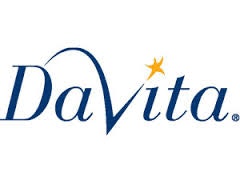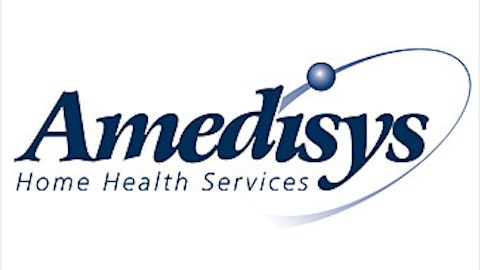In order to be successful in investing, just pick a great company and stick with it through ups and downs. That is what Charlie Munger often advises investors to do. Indeed, Warren Buffett has become a better investor when his investment philosophy shifted towards great quality businesses. Recently, Berkshire Hathaway Inc. (NYSE:BRK.A) has been adding shares of DaVita HealthCare Partners Inc (NYSE:DVA) to its portfolio, even as its share price reached its all time high of $123.35 per share. That might be Ted Weschler’s decision, as he has been a DaVita shareholder for more than 12 years.
Let’s take a closer look to see whether or not DaVita HealthCare Partners Inc (NYSE:DVA) should be a long-term stock in value investors’ portfolios.
DaVita HealthCare Partners Inc (NYSE:DVA) is considered one of the leading providers of kidney dialysis services in the U.S. In 2012, the company provided dialysis services via the network of more than 1,950 dialysis centers for about 153,000 patients. With the recent acquisition of HCP, Inc. (NYSE:HCP) in November 2012, DaVita HealthCare Partners Inc (NYSE:DVA) entered the business of patient and physician-focused integrated healthcare delivery and management. In 2012, HCP had around 724,000 members in different areas, including Southern California, southern Nevada, and Florida. The majority of its revenue, $7.1 billion, or 86% of the total revenue, was generated from the U.S. dialysis segment while the HCP segment contributed $477 million in 2012 revenue, accounting for 5.8% of the total revenue. Assuming that HCP was acquired in the beginning of 2012, on a pro forma basis, U.S. dialysis would have accounted for 68% of the total revenue, while HCP would have accounted for 26% of the total revenue.
A huge growth and reasonable debt level
At first glance, DaVita seems to be over-leveraged. As of December 2012, DaVita HealthCare Partners Inc (NYSE:DVA) had nearly $3.93 billion in total stockholders’ equity, $533.75 million in cash and more than $8.55 billion in both long and short-term debt. In 2012, the amortizable intangible amount increased significantly, from $159.5 million in 2011 to nearly $2.13 billion in 2012, mainly due to nearly $1.49 billion in customer relationships. However, the debt maturities were spread out over many years.

With a yearly EBITDA of $1.74 billion, I personally think that DaVita HealthCare Partners Inc (NYSE:DVA) could be quite comfortable to cover interest expenses and debt principals. Moreover, DaVita has demonstrated an impressive operating performance record for the past 10 years. Its revenue has increased four times, from $2 billion in 2003 to nearly $8.19 billion in 2012, whereas its earnings rose significantly from $176 million, or $1.66 per share, to $536 million, or $5.47 per share, in the same period. Interestingly, its share count has been shrinking by 14%, from 114 million shares in 2003 to around 98 million shares in 2012.
Second player in dialysis industry
DaVita HealthCare Partners Inc (NYSE:DVA) ranked second in the industry, behind its main competitor Fresenius Medical Care AG & Co. (ADR) (NYSE:FMS), which has more than 3,160 global dialysis clinics to treat nearly 260,000 patients worldwide. The two companies combined accounted for around two-thirds of outpatient dialysis patients in the U.S. Interestingly, both companies have been strategic partners for several years. DaVita has purchased some dialysis equipment from Fresenius since 2010. In January, those two companies signed an agreement for providing certain pharmacy services to Fresenius’s Medicare patients in the U.S.
Peer comparison
At the current price of $123.35 per share, DaVita is worth $13 billion on the market. Compared to its peers including, Fresenius and Amgen, Inc. (NASDAQ:AMGN), DaVita is the smallest company. Fresenius is trading at $34.15 per share, with a total market cap of $20.95 billion.
Amgen is considered the biggest company among the three, with a $70.64 billion market cap.
| DVA | FMS | AMGN | |
| Operating margin (%) | 15.8 | 16.1 | 27.7 |
| Return on Capital (%) | 53.6 | 39.2 | 64.3 |
| EV/EBITDA | 11.88 | 10.34 | 10 |
| D/E | 2.2 | 0.7 | 1.3 |
| 10-year EBITDA growth (%) | 15.3 | 12.7 | 11.3 |
| Dividend yield (%) | N/A | 0.9 | 1.7 |
All the above-mentioned companies are quite profitable and are generating significantly high return on capital. Amgen stands out with its highest margin and return on capital. In addition, Amgen is paying the highest dividend yield at 1.7%, while the Fresenius’s dividend yield is only 0.9%. DaVita doesn’t pay any dividend yet. In terms of leverage, DaVita is the most leveraged company, with 2.2x debt/equity, while the debt/equity ratios of Fresenius and Amgen are only 0.7x and 1.3x, respectively.
Among the three, DaVita seems to be the most expensive with 11.88 times EV/EBITDA. Amgen is the cheapest with only 10 times EV/EBITDA, while Fresenius is valued at 10.34 times EV/EBITDA on the market. DaVita has experienced a 15.3% annualized growth in its EBITDA for the last 10 years, whereas 10-year EBITDA growth of Fresenius and Amgen were much less at 12.7% and 11.3%, respectively.
Foolish Bottom Line
Investors should dig deeper into the dialysis business in order to pick the right stock for their own portfolios. DaVita has beaten Fresenius and Amgen terms of growth. It seems that Ted Weschler like DaVita due to its huge future growth potential.
The article Is DaVita Worth a Buy? originally appeared on Fool.com and is written by Anh Hoang.
Copyright © 1995 – 2013 The Motley Fool, LLC. All rights reserved. The Motley Fool has a disclosure policy.






